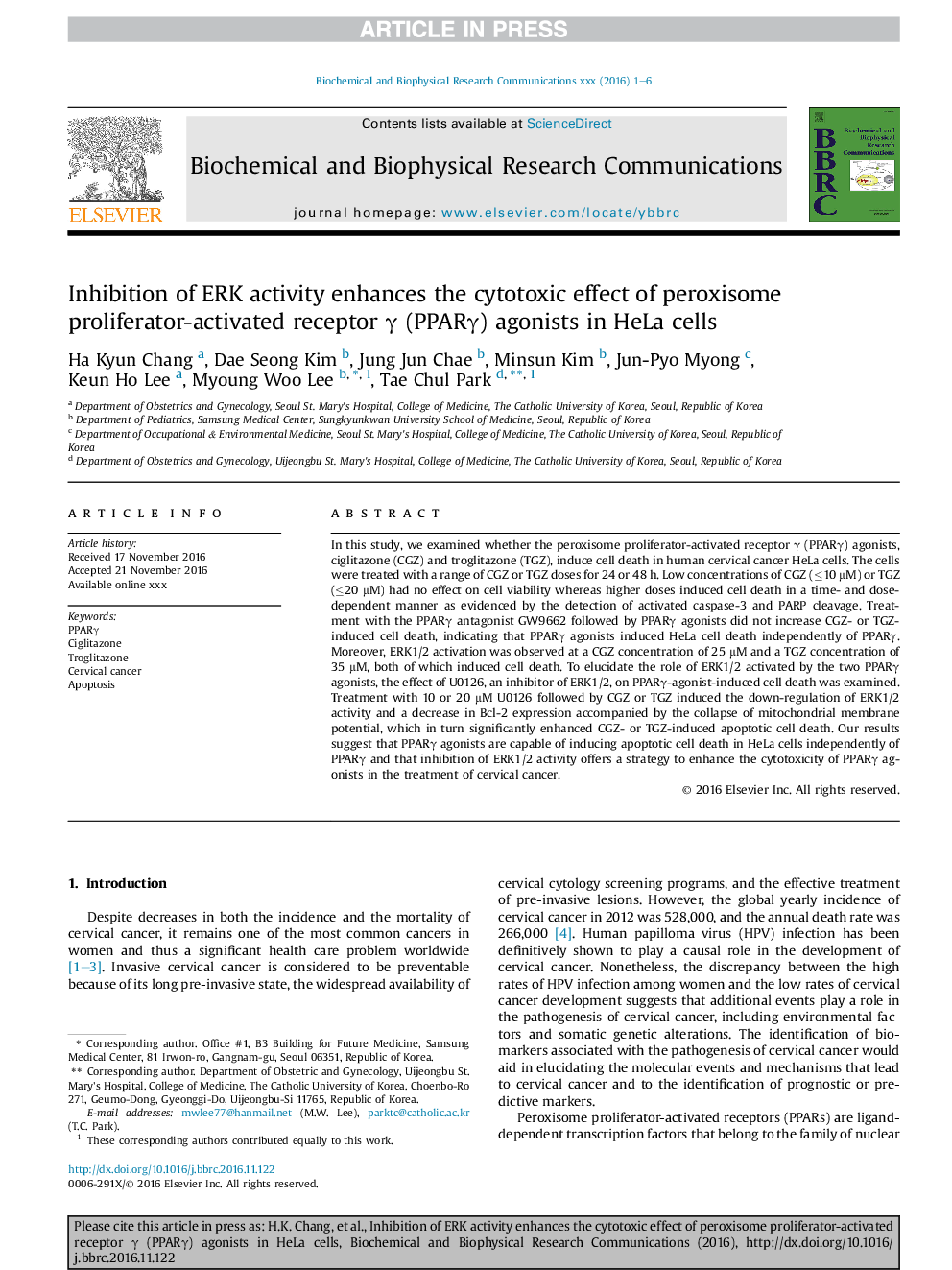| Article ID | Journal | Published Year | Pages | File Type |
|---|---|---|---|---|
| 5506259 | Biochemical and Biophysical Research Communications | 2017 | 6 Pages |
Abstract
In this study, we examined whether the peroxisome proliferator-activated receptor γ (PPARγ) agonists, ciglitazone (CGZ) and troglitazone (TGZ), induce cell death in human cervical cancer HeLa cells. The cells were treated with a range of CGZ or TGZ doses for 24 or 48 h. Low concentrations of CGZ (â¤10 μM) or TGZ (â¤20 μM) had no effect on cell viability whereas higher doses induced cell death in a time- and dose-dependent manner as evidenced by the detection of activated caspase-3 and PARP cleavage. Treatment with the PPARγ antagonist GW9662 followed by PPARγ agonists did not increase CGZ- or TGZ-induced cell death, indicating that PPARγ agonists induced HeLa cell death independently of PPARγ. Moreover, ERK1/2 activation was observed at a CGZ concentration of 25 μM and a TGZ concentration of 35 μM, both of which induced cell death. To elucidate the role of ERK1/2 activated by the two PPARγ agonists, the effect of U0126, an inhibitor of ERK1/2, on PPARγ-agonist-induced cell death was examined. Treatment with 10 or 20 μM U0126 followed by CGZ or TGZ induced the down-regulation of ERK1/2 activity and a decrease in Bcl-2 expression accompanied by the collapse of mitochondrial membrane potential, which in turn significantly enhanced CGZ- or TGZ-induced apoptotic cell death. Our results suggest that PPARγ agonists are capable of inducing apoptotic cell death in HeLa cells independently of PPARγ and that inhibition of ERK1/2 activity offers a strategy to enhance the cytotoxicity of PPARγ agonists in the treatment of cervical cancer.
Related Topics
Life Sciences
Biochemistry, Genetics and Molecular Biology
Biochemistry
Authors
Ha Kyun Chang, Dae Seong Kim, Jung Jun Chae, Minsun Kim, Jun-Pyo Myong, Keun Ho Lee, Myoung Woo Lee, Tae Chul Park,
